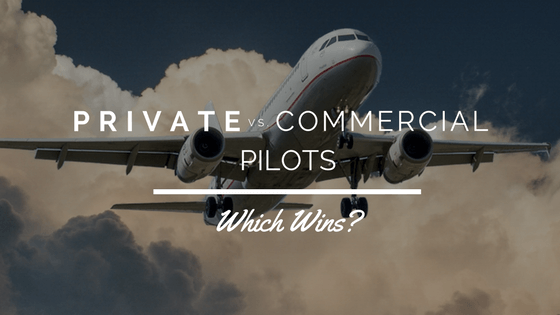If you ask any pilot, they’ll probably tell you that they’d prefer to own the plane they fly – and who could blame them? Owning a private plane gives you the means to fly wherever you want, whenever you want. However, the costs associated with private flight operations are high, and often far above a private pilot’s means. This is due to a number of factors: Aircraft performance and operation can differ substantially, and the would be owner’s personal income, expenses, schedule, and availability all impact the feasibility of flying private versus commercial flight operations.
Income
Both private and commercially owned operations offer pilots a steady income. Pilots who fly their own aircraft or contract with a private company need to be more concerned with their reputations. A freelance pilot literally lives on the strength of their reputation; without trust, they have no clients or income to support them.
Pilots employed privately do have more flexibility to set their compensation than commercial pilots do; salaries for the latter are often determined by seniority. Large corporations have to contend with unions. A seniority compensation structure has been the status quo for decades. Private operators do not have this constraint. In fact, private clients often gladly pay a premium to use a private enterprise.
Expenses, Schedules, and Destinations
Paid expenses is where private ownership veers furthest from the conventions of commercial operations. Unlike in commercial operations, it is customary to pay most or all of the expenses of pilots flying privately-owned aircraft. This custom makes it advantageous for pilots to stay with their clients on a long-term and as-needed basis.
Commercial operations have fixed schedules, with lifestyle accommodations that closely tie to corporate bottom lines. The result is cost-efficient resting quarters and eating establishments for commercial pilots. In contrast, clients who hire private operators do so because they want to maintain flexible schedules and have more comfortable lifestyles. Thus, pilots flying private operations have more control over their daily schedules and means. However, on a week-to-week basis, commercial employment offers a more conducive schedule for family life.
Competition
Both private and commercial flight operations are highly competitive. Pilots flying privately may be more competitive because of the need to maintain a good reputation. Large corporations offer more options in terms of fleet and route diversity. There is simply more demand and opportunities in the commercial space.
People
Flying in a private aircraft is usually considered a step above first class. These pilots meet a lot of extraordinary people and have the chance to travel the world. One would imagine that they themselves stray quite far from the norm.

